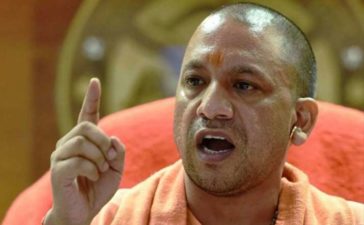Mumbai: The Central government told the Delhi High Court on Friday that online platforms such as Netflix and Amazon Prime Video are not required to obtain licences from the government to run their programmes on Indian web series.
OTT (‘over-the-top’) platforms, as they are called, use the Internet to bypass traditional distribution streams.
Advocate Harpreet S Hora, representing an NGO called Justice for Rights Foundation, had sought laws to regulate sexually explicit content on OTT platforms.
Content not going through the Central Board of Film Certification is often inappropriate, religiously forbidden, legally restricted and sexually explicit, the petition says.
The NGO also alleges the platforms violate the Indian Penal Code and the Information Technology Act. The High Court has now dismissed the plea.
Just a month ago, Hotstar, Netflix, Zee5, Jio, Voot, Arre, SonyLIV, ALT Balaji and Eros Now signed a self-censorship code that restricts them from showing certain kinds of content.
The Internet and Mobile Association of India (IAMAI) says this is meant to protect the customers’ interests while at the same time offering them diverse content.
The code would foster creative freedom and lay down uniform principles to be followed by film-makers in letter and spirit, it says.
Director Pawan Kumar, best known for his Kannada films U-Turn and Lucia, says creative people must exercise responsibility when they make films for online platforms.
No censorship for sexual content for online platforms on Indian web series:
“So far, OTT platforms have been quite generous about the creative freedom. You don’t have to shy away from saying what you want to say, but you have to know how to present it without hurting any sentiments,” he says.
Two of Pawan Kumar’s films are on Netflix.
Exposure to foreign content is inspiring many Indian filmmakers to push their boundaries, he reckons.
“You are thrilled when you have the liberty to make what you want. But don’t overdo it; use it only if the story requires you to. Don’t exploit the liberty given to you, be thoughtful,” is his advice.
OTT platforms help filmmakers extend their business once their movies are out of the theatres.
‘KGF: Chapter 1’ has been one of the most talked-about films last year; in fact, it was the biggest Indian release of 2018.
The Kannada film has been released in four other languages (Kannada, Malayalam, Tamil and Telugu) on Amazon Prime Video.
For Prashanth Neel, its director, the ultimate high is to show his work to an audience sitting at a cinema hall, and not in a drawing room.
“When I make a film, I don’t focus on how it will do on online platforms,” he says, acknowledging at the same time that online platforms are a new stream of revenue.
“Take Baahubali, for example. Because it did so well at the theatres, a web series is being made now. So while there is always a theatre audience, web platforms can help expand the experience for the audience,” he explains.
Some Case in Mumbai:
In October 2018, Divya Ganeshprasad Gontia petitioned the government to regulate the ‘obscenity’ in web series. The petition was a response to the sexually explicit scenes in Sacred Games, starring Nawazuddin Siddiqui and Saif Ali Khan.
Advocate Shyam Dewani filed the public interest case, and it is coming up for hearing on February 20.
“The PIL covered examples on how several shows are now vulgar and hurt religious sentiments. There must be some restriction as people of all ages have access to it,” he told Metrolife.
Startlingly explicit:
Some critically acclaimed web series with explicit sex scenes:
– Lust Stories, Netflix
– Sacred Games, Netflix
– Four More Shots Please!, Amazon Prime Video
– Gandii Baat, ALT Balaji






